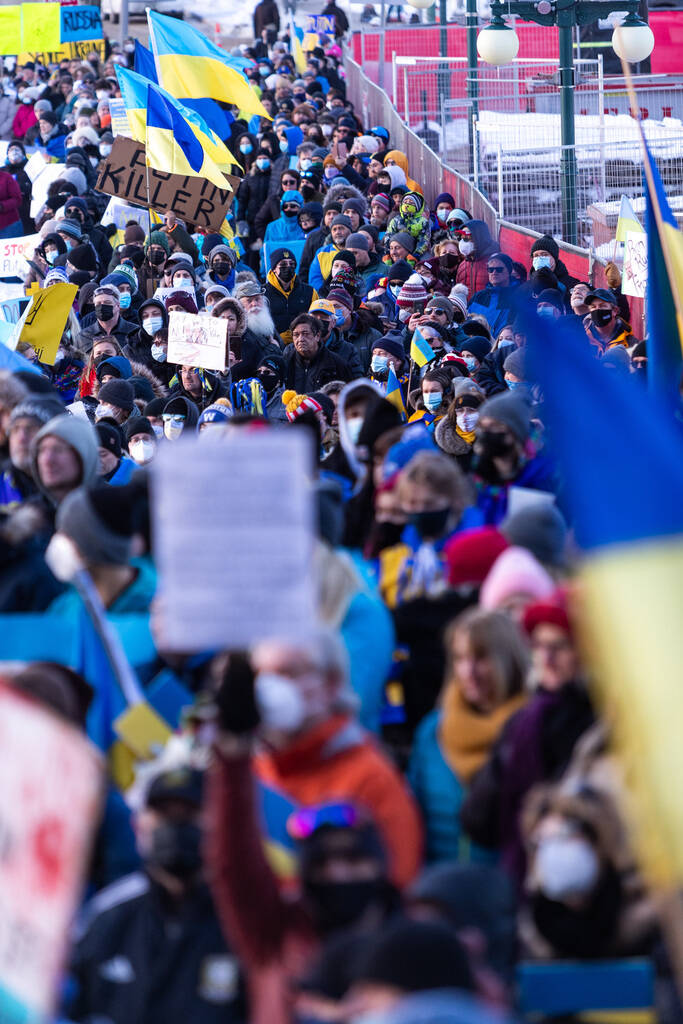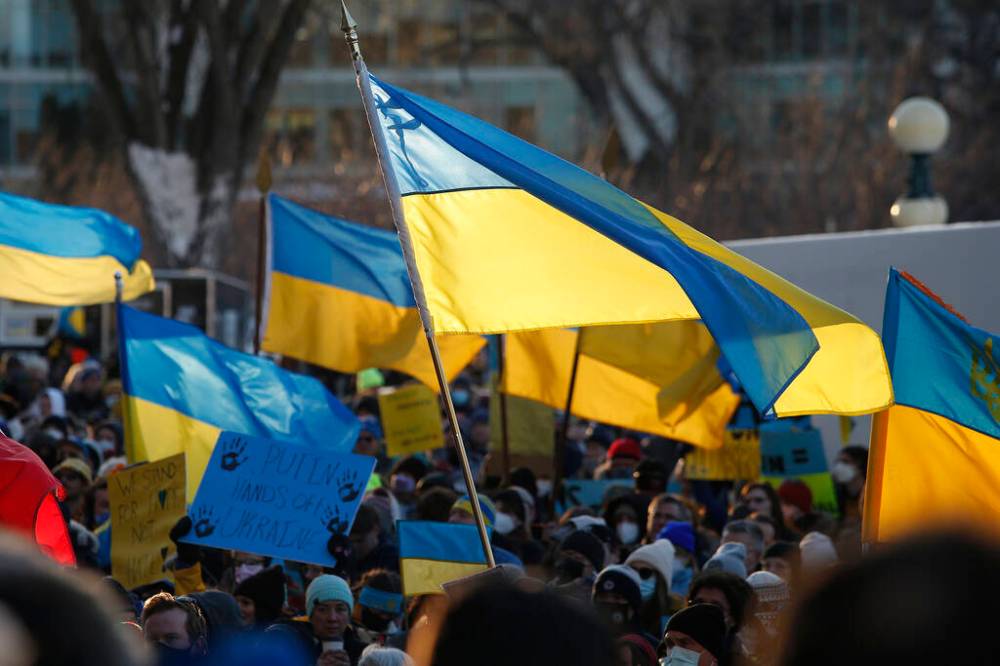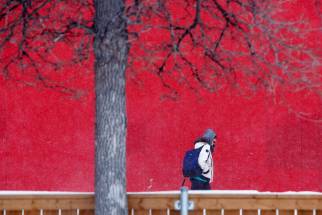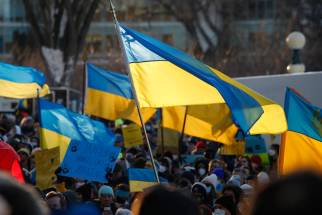Aiding Ukraine is simply returning the favour
Read this article for free:
or
Already have an account? Log in here »
To continue reading, please subscribe:
Monthly Digital Subscription
$0 for the first 4 weeks*
- Enjoy unlimited reading on winnipegfreepress.com
- Read the E-Edition, our digital replica newspaper
- Access News Break, our award-winning app
- Play interactive puzzles
*No charge for 4 weeks then price increases to the regular rate of $19.00 plus GST every four weeks. Offer available to new and qualified returning subscribers only. Cancel any time.
Monthly Digital Subscription
$4.75/week*
- Enjoy unlimited reading on winnipegfreepress.com
- Read the E-Edition, our digital replica newspaper
- Access News Break, our award-winning app
- Play interactive puzzles
*Billed as $19 plus GST every four weeks. Cancel any time.
To continue reading, please subscribe:
Add Free Press access to your Brandon Sun subscription for only an additional
$1 for the first 4 weeks*
*Your next subscription payment will increase by $1.00 and you will be charged $16.99 plus GST for four weeks. After four weeks, your payment will increase to $23.99 plus GST every four weeks.
Read unlimited articles for free today:
or
Already have an account? Log in here »
Hey there, time traveller!
This article was published 02/03/2022 (1378 days ago), so information in it may no longer be current.
When bombs explode in Ukraine, Manitoba feels the reverberations and shudders.
This province is geographically distant from the country under siege, but the separation of thousands of kilometres and an ocean can’t weaken the special bond between Manitoba and Ukraine.

The 182,000 Manitobans of Ukrainian descent are understandably appalled by news coverage of citizens in their homeland huddling in underground corridors and shelters, or caught in traffic jams while trying to flee the country.
Their outrage is shared by many Manitobans of different ethnic backgrounds who, even without a personal family link to Ukraine, remain distraught to see the country attacked by Russian invaders at the direction of a dangerously deranged tyrant.
The public support is visible. Thousands of Manitobans gathered beneath the blue-and-yellow Ukrainian flag on the legislative grounds last weekend, some chanting “Glory to Ukraine,” and Winnipeg Jets fans on Tuesday evening gave an extended standing ovation after the Hoosli Male Chorus performed Ukraine’s national anthem. But many Manitobans want to move beyond symbolism and take specific, tangible action.
We can support boycotts. We can donate money and goods to help Ukraine. We can pray, as Manitoba churches have been doing this week. Perhaps most importantly, we can prepare to accept Ukrainian migrants when the time is right.
To sharpen the focus so our humanitarian efforts are most effective, an appropriate place to begin is consultation with leaders of the Ukrainian community in Manitoba. They are well equipped to advise how best to help.

Winnipeg serves as the head office of the Ukrainian Canadian Congress, and is the spiritual center of both the Ukrainian Catholic Church of Canada and the Ukrainian Orthodox Church of Canada. Officials in these and other Ukrainian organizations maintain on-the-ground contacts in Ukraine.
A local Ukrainian official said this week some Manitobans have already offered to help welcome Ukrainian migrants, but it’s too soon to expect a flood of migrants, as most of the hundreds of thousands of Ukrainians who have fled their bomb-ravaged country are temporarily sheltered in neighbouring European countries, perhaps waiting with hope to see whether the invasion of their country will soon be resolved.
Encouragingly, Canadian governments have pledged to make it easier for Ukrainians fleeing the war to find refuge here. Prime Minister Justin Trudeau said last Thursday their immigration applications would be prioritized. And Manitoba Premier Heather Stefanson told the crowd gathered Saturday on the legislative grounds that Manitoba will take in more Ukrainians under the provincial nominee program.
While such government pledges are promising, immigration watchers note Ottawa was also enthusiastic last year when it promised to welcome 40,000 Afghan refugees and, to date, only about 8,000 have been allowed in. The gap between intention and action on immigration matters is well known to Lloyd Axworthy, who chairs the World Refugee and Migration Council.
His group urges Ottawa to tap into communities with a sizeable Ukrainian community — Manitoba has the highest per capita of any Canadian province — for a fast-tracked private sponsorship program, and also for measures such as organizing flights to Canada and deploying Canadian visa officers near Ukraine.
When Ukraine migrants do arrive, Manitoba’s well-established Ukrainian community can lead the way in offering safe sanctuary among people who speak the language, share their culture and understand the challenges of adapting to a new country.
Generations of Ukrainian immigrants have earned a high regard for their contributions to this province. During a crisis of catastrophic proportion, Manitoba can return the favour by offering to help where it’s needed most.
History
Updated on Wednesday, March 2, 2022 9:22 PM CST: Fixes typo.












